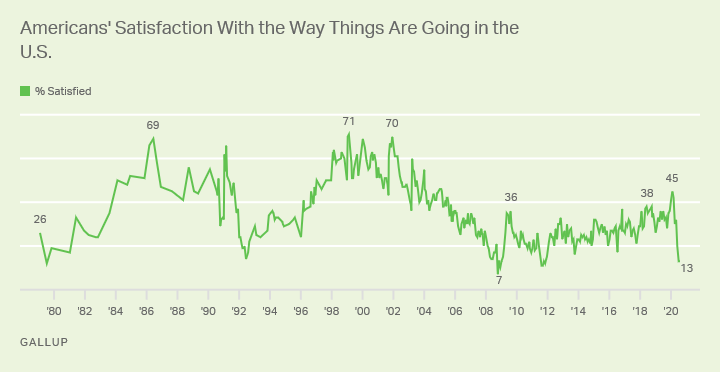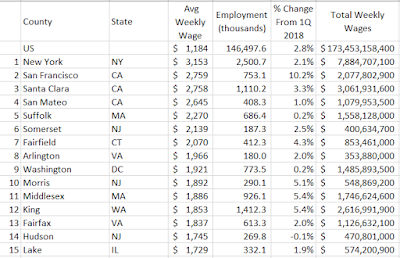The simplest framing of that argument is simply that in 1860, the brand new Republican Party's plan for a national (rather than rural) industrial economy dependent on capital (rather than slavery) was truly visionary, an advance on every front. The decades that followed were unprecedented in terms of productivity growth, improvement in quality of life and the rapid growth in products and wealth. Now, in 2020, Trump's plan for a national (rather than global, as the economy dependent on a worldwide web and container ships has become) industrial economy dependent on financial and industrial capital (rather than an information economy dependent on intellectual capital) is reactionary, representing regress rather than progress. The telegraph was awesome once upon a time but today people prefer to text or video conference. Factory work once represented the future of job creation. Not today.
Lincoln had to create a national, industrial economy. Trump is trying to destroy a global, information economy.
Here is another way that Trump and Lincoln differ.
The conversations to create a new world have to be thoughtful, sustained, and zoom out to big pictures and zoom in to the small details; explore consequences and nuance and paint a picture of the new world proposed. Construction takes sustained planning, execution, and coordination with others.
The Lincoln - Douglas debates that brought the Republican Party's first president into the national limelight had a curious format. They were adversarial but each speaker had sufficient time to make his point. "The first speaker spoke for 60 minutes, the second had a 90 minute rebuttal, and then the first speaker had a 30 minute rebuttal/time for closing arguments."
I was unable to find what was the longest time Trump made it without interrupting or speaking in last night's debate but I don't think he remained silent for even one of Biden's two minute windows. For Lincoln, 30 minutes was the shortest time slot and 90 was the longest. In last night's debate, 2 minutes was the longest window and Trump could not even remain silent that long.
Singer and Brooking in LikeWar share a study that in 2000, the average attention span of an internet user was measured at twelve seconds. By 2015, it had shrunk to eight seconds - slightly less than the average attention span of a goldfish. We barely have time for tweets and memes. (What does a goldfish think? "Oh look! A castle." Pause. "Oh look! A castle!")
Lincoln had time enough to speak a new world into existence. Trump only wants time enough to destroy one. And the less time you have to think about what he's doing, the less likely you are to see how destructive he is, much less have time enough to imagine the next one.















